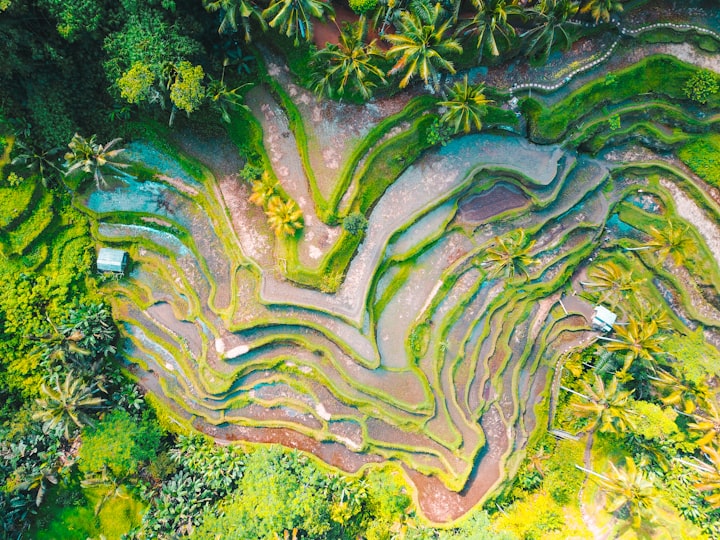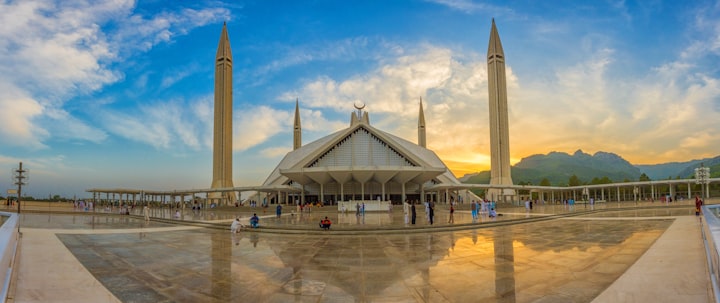Can Indonesia's New Eco-Capital Become a Reality?
The Ripple Effect: Beyond Nusantara

Indonesia, a sprawling archipelago nation, is embarking on an ambitious project: building a brand new capital city from the ground up. But unlike the typical image of a bustling metropolis, Nusantara (literally meaning "outer islands" or "archipelago" in Javanese) aspires to be different. Nicknamed the "Forest City," Nusantara is envisioned to rise amidst the lush rainforests of eastern Borneo, a stark contrast to the current capital, Jakarta, which grapples with overcrowding, pollution, and sinking land.
The decision to relocate the capital stems from various challenges plaguing Jakarta. The megacity, home to over 30 million people, faces severe environmental issues. Traffic congestion and air pollution are rampant, while excessive groundwater extraction has caused the city to sink several centimeters per year. Nusantara, on the other hand, promises a fresh start, a chance to build a sustainable and environmentally friendly city.
The project, however, is not without its critics. Environmentalists raise concerns about the potential impact on Borneo's rainforests, a biodiversity hotspot teeming with endangered species like orangutans and pygmy elephants. Deforestation for construction could disrupt delicate ecosystems and displace indigenous communities who have lived in harmony with the forest for generations.
Building a city in a remote location also presents logistical challenges. Infrastructure needs to be built from scratch, including transportation networks, utilities, and waste management systems. Attracting businesses and residents to a new city far from established economic hubs requires strong incentives and long-term planning.
The Green Blueprint
The Indonesian government acknowledges these concerns and emphasizes its commitment to a sustainable approach. Nusantara's masterplan prioritizes green development. Only a portion of the land will be cleared for construction, with the remaining area designated as protected forests and urban parks. Buildings will be designed to be energy-efficient and minimize waste.
The city aims to achieve net-zero carbon emissions by relying on renewable energy sources like solar and geothermal power. Sustainable transportation options like electric vehicles and mass rapid transit systems are planned to minimize reliance on private cars.
Challenges and Opportunities
The success of Nusantara hinges on the government's ability to translate its ambitious vision into reality. Transparency and accountability will be crucial in ensuring that environmental safeguards are upheld and local communities are not marginalized.
The project presents an opportunity to showcase Indonesia's leadership in sustainable urban development. If successful, Nusantara could serve as a model for other nations grappling with urbanization and environmental concerns.
The Social Impact
The impact of Nusantara on the indigenous communities of Borneo is a critical consideration. The government must ensure their rights are protected and that they benefit from the development. This could involve creating opportunities for local employment, investing in education and healthcare, and ensuring traditional knowledge is incorporated into the city's planning.
The Economic Engine
Nusantara's economic viability is another question mark. Attracting businesses and skilled workers to a new city requires clear investment opportunities and a conducive business environment. The government must also consider how Nusantara will integrate with the existing national economy and avoid becoming an isolated enclave.
The Road Ahead
The construction of Nusantara is already underway, with initial phases focused on infrastructure development. The success of this project will be closely monitored by the international community. Can Indonesia reconcile its ambitions for a modern metropolis with the need to protect its precious rainforests?
The implications of Nusantara extend far beyond the borders of the new capital city. Success in building a sustainable metropolis could inspire similar projects across Southeast Asia, a region experiencing rapid urbanization. Cities like Bangkok and Manila face comparable challenges with pollution, congestion, and climate change. Nusantara's journey could provide valuable lessons on green building practices, renewable energy integration, and fostering livable urban spaces.
However, concerns linger about the potential for a domino effect. While Nusantara aspires to be a model for sustainable development, the large-scale infrastructure projects required for its construction could put pressure on surrounding ecosystems. Ensuring responsible development practices and robust environmental regulations will be critical to prevent deforestation and habitat loss beyond the designated city limits.
The project also presents an opportunity to re-evaluate Indonesia's relationship with its natural resources. Borneo's rainforests are vital carbon sinks, playing a crucial role in mitigating climate change. The development of Nusantara could be a catalyst for stricter policies on deforestation and a shift towards sustainable forest management practices throughout the island.
Furthermore, Nusantara's construction has reignited discussions about regional development in Indonesia. For decades, economic power has been heavily concentrated in Java, particularly Jakarta. The relocation of the capital could stimulate growth in Kalimantan and encourage a more balanced distribution of resources across the vast archipelago.
Nusantara's story is far from written. The coming years will be pivotal in determining the project's success. The world watches with anticipation to see if Indonesia can navigate the complex challenges and harness the potential of this ambitious undertaking. Will the "Forest City" rise as a testament to human ingenuity and ecological harmony, or will it succumb to the pitfalls of unchecked development? Only time will tell.
Nusantara represents a bold experiment in urban planning. The coming years will reveal whether the "Forest City" lives up to its name and becomes a beacon of sustainability or a cautionary tale of environmental destruction.
About the Creator
Moharif Yulianto
a freelance writer and thesis preparation in his country, youtube content creator, facebook






Comments
There are no comments for this story
Be the first to respond and start the conversation.